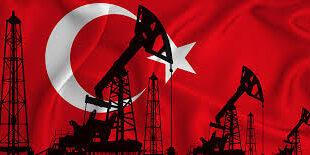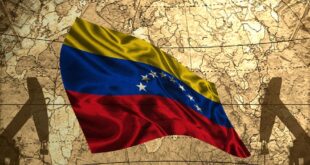Earlier this year there were high hopes around the U.S. lifting its sanctions on Venezuela in the face of oil shortages and rising prices, due to the Russian invasion of Ukraine, allowing black gold to once again flow out of the South American oil giant. But this has not yet come to fruition. While some allowances were made for oil trade, Venezuela’s statement to the world is clear – it is ready to pump and export huge amounts of its crude whenever given the chance.
No matter how many times the U.S. government rejects Venezuelan pleas to end sanctions and fill the supply gap left due to sanctions on Russian energy, the South American oil major will not give up on its bid to boost crude exports. President Madero stated this week that Venezuela is ready to recommence its oil production and export to the rest of the world whenever given the opportunity. At an event held during the OPEC secretary-general’s visit to Caracas Maduro said “Venezuela is ready and willing to fulfil its role and supply, in a stable and secure manner, the oil and gas market that the world economy needs.
The country’s dictator quashed fears that Venezuela’s oil industry was far from recovering, after years of low production and underinvestment. Its output currently stands at around 700,000 bpd compared to 2.3 million bpd two decades ago. This comes from U.S. sanctions imposed on the trading of Venezuelan crude, which previously provided around 96 percent of the country’s income.
In May, President Biden made some concessions to the sanctions, allowing Venezuela to export oil to Europe for debt. Italian firm Eni and Spanish oil major Repsol were allowed to ship Venezuelan crude to Europe in an oil-for-debt swap, helping to fill the gap in the region. This was not the change Venezuela had hoped for, but it provided greater optimism for more concessions to be made in the coming months.
But in August, Maduro decided to suspend oil-for-debt shipments to Europe, stating that he wanted refined fuels from Eni and Repsol in exchange for crude in place of the current deal. Venezuela has had much difficulty in finding refined fuels in recent months, with many of its refineries in a state of disrepair. It has already been trading crude for condensate with Iran to meet its needs, circumventing U.S. sanctions on the two countries. If Venezuela can import more refined oils, it could better support its oil industry recovery, with several operations requiring dilutants to continue. So far, Europe has not agreed to this request, leaving a gap in supply once again.
But just how much oil potential does Venezuela have? The South American oil giant has the world’s biggest crude reserves, measured at around 18.2 percent of the world’s barrels of oil in 2016. And while the current output is low due to sanctions, Maduro believes the country could rapidly boost its output by several hundred thousand barrels of oil a day. However, a meaningful long-term increase in production would require large foreign investments in exploration and oil infrastructure.
Broken equipment, derelict oil fields, and a lack of talent are just some of the challenges that energy experts highlight as the barriers to achieving long-term production success. This, coupled with political uncertainty, has deterred many oil companies from investing in the region, despite the abundance of reserves. Currently, U.S. oil major Chevron, Italy’s ENI, and Spain’s Repsol continue to operate in the country, with others, such as ExxonMobil, having withdrawn following sanctions on the industry.
The question of the ‘lesser of two evils’ has risen in recent months. Many question whether sanctions on Venezuela should be eased to reduce the burden on Europe and North America felt due to the loss of Russian oil supplies. However, Venezuela’s close political connection with Cuba, China, and Russia has led many to be more critical of this option. This back and forth has put an ease of sanctions on hold for several months. Yet, some are now questioning whether the sanctions placed on Venezuelan oil have ever functioned.
From the very beginning, there was no clear analysis of the anticipated outcome of the sanctions. Ex-assistant secretary of state for western hemisphere affairs Kimberly Breier suggested that the sanctions were enacted with little evaluation of the consequences or the potential impact on Venezuelan citizens. She said, “There was absolutely no evidence” that the oil sanction would bring about Maduro’s removal and yet Bolton “set the expectation that somehow this was magically going to occur”.
This has led to a massive economic downturn in the country, a severe fuel shortage, and poor living conditions for Venezuelans. It has not, however, stopped the country from selling its oil, as it continues to foster trade relations with Iran and China. So, with the question of whether sanctions were functional to begin with, a global shortage of supplies, and the willingness of Madero to recommence the country’s oil operations as soon as permitted, the tides could soon change for Venezuela.

 Iran Energy News Oil, Gas, Petrochemical and Energy Field Specialized Channel
Iran Energy News Oil, Gas, Petrochemical and Energy Field Specialized Channel



